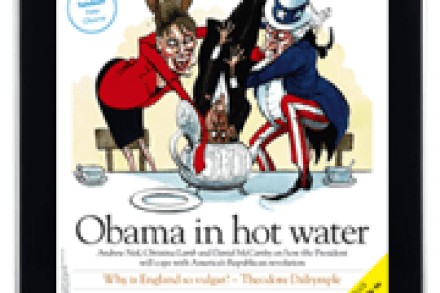In this week’s Spectator
The latest edition of The Spectator is now out on iPad (click here for more info) and the newsagents (or £2, posted direct today). I thought CoffeeHousers may be interested in a small selection of the goodies we have in store. 1. Andrew Neil on the conservative comeback in America. He spent the summer shadowing the Tea Party, and gives the best analysis you’ll read on what just happened – and what lies ahead. (You can read it here.) The Sunday Times’ Christina Lamb travelled across Nevada and California with the Tea Partiers, and tells tales from the campaign bus (one being that they only serve coffee). And Daniel
















